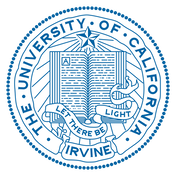Project Funding
|
CSforALL: RPP
Collaborative Network of Grades 3-5 Educators for Computational Thinking for English Learners (CONECTAR) September 1, 2019 – August 31, 2022 Grant No. 1923136 Proposal $1,060,000.00 Principal Investigator: Mark Warschauer
School of Education University of California, Irvine |
CSforALL: RPP
Deepening Computational Thinking for English Learners by Integrating Community-Based Environmental Literacy October 1, 2023 – September 30, 2027 Grant No. 2317832 Proposal $2,000,000 Principal Investigator: Mark Warschauer School of Education University of California, Irvine |
Summary
The project aims to build connections to a broader curriculum as reflected in the Next Generation Science Standards (NGSS) and the Common Core State Standards (CCSS), to the language and discourse needed to ensure academic success, and to the learners’ peers, community, families and culture needed to make learning relational and meaningful. The work is situated in Santa Ana schools, Montebello Unified Schools, and El Sol Science and Arts Academy, where the majority of students are low-income, Hispanic, English language learners. It will use the principles of Design-Based Implementation Research (DBIR), designing interventions to implement, study and refine, alongside Santa Ana Unified School District (SAUSD), Montebello Unified School District (MUSD), and El Sol Science and Arts Academy.
Under the first NSF grant Collaborative Network of Educators for Computational Thinking for All Research (CONECTAR), the team visited partner elementary schools to gather information about the current teaching of computational thinking, conducted a district-wide survey of elementary school teachers, and gathered examples of instructional materials developed nationally to inform local adaption strategies. Researchers worked with a team of teachers to develop pilot materials and instructional units for the 3rd, 4th, and 5th grade levels. These materials–scaffolded for non-native English speakers–will integrate computational thinking with NGSS and CCSS. In the following year, teachers implemented the instructional materials in their classrooms with support from UCI and OCDE. Data was gathered to study the implementation process, the challenges faced and how they were addressed, the extent to which the materials engage the learners on the emotional, behavioral, and cognitive levels, and the suitability of the materials for promoting computational thinking among the targeted learners. Under the second grant (CONECTAR 2.0), the initiative will continue to iterate the curriculum with educators of SAUSD with a focus scaling the curriculum to fourth grade classrooms in the district.
Under the third NSF grant Deepening Computational Thinking for English Learners by Integrating Community-Based Environmental Literacy, the team is addressing environmental literacy, a set of knowledge, skills, and practices vital to supporting ecologically sound, economically prosperous, and equitable communities to present and future generations. We extend the previously developed Research-Practice-Partnership that promoted computational thinking Hispanics and English learners through culturally-sustaining pedagogy by integrating community-based environmnental literacy. The curriculum leverages the unique cultural and linguistic assets of Hispanic learners to simultaneously develop computing and language skills. In this phase, the project will develop, implement, and evaluate a third year of the computational thinking curriculum integrated with environmental literacy. This will allow students to apply their knowledge of computing to modeling systems, visualizing data, and communicating findings of their own data-based inquiry into local environmental issues. Through this, students will deepen their understanding of local environmental phenomena, come to understand the value of computer science in addressing challenges affecting their local communities, and enhance their language and literacy skills through scientific collaboration and communication.
Under the first NSF grant Collaborative Network of Educators for Computational Thinking for All Research (CONECTAR), the team visited partner elementary schools to gather information about the current teaching of computational thinking, conducted a district-wide survey of elementary school teachers, and gathered examples of instructional materials developed nationally to inform local adaption strategies. Researchers worked with a team of teachers to develop pilot materials and instructional units for the 3rd, 4th, and 5th grade levels. These materials–scaffolded for non-native English speakers–will integrate computational thinking with NGSS and CCSS. In the following year, teachers implemented the instructional materials in their classrooms with support from UCI and OCDE. Data was gathered to study the implementation process, the challenges faced and how they were addressed, the extent to which the materials engage the learners on the emotional, behavioral, and cognitive levels, and the suitability of the materials for promoting computational thinking among the targeted learners. Under the second grant (CONECTAR 2.0), the initiative will continue to iterate the curriculum with educators of SAUSD with a focus scaling the curriculum to fourth grade classrooms in the district.
Under the third NSF grant Deepening Computational Thinking for English Learners by Integrating Community-Based Environmental Literacy, the team is addressing environmental literacy, a set of knowledge, skills, and practices vital to supporting ecologically sound, economically prosperous, and equitable communities to present and future generations. We extend the previously developed Research-Practice-Partnership that promoted computational thinking Hispanics and English learners through culturally-sustaining pedagogy by integrating community-based environmnental literacy. The curriculum leverages the unique cultural and linguistic assets of Hispanic learners to simultaneously develop computing and language skills. In this phase, the project will develop, implement, and evaluate a third year of the computational thinking curriculum integrated with environmental literacy. This will allow students to apply their knowledge of computing to modeling systems, visualizing data, and communicating findings of their own data-based inquiry into local environmental issues. Through this, students will deepen their understanding of local environmental phenomena, come to understand the value of computer science in addressing challenges affecting their local communities, and enhance their language and literacy skills through scientific collaboration and communication.



